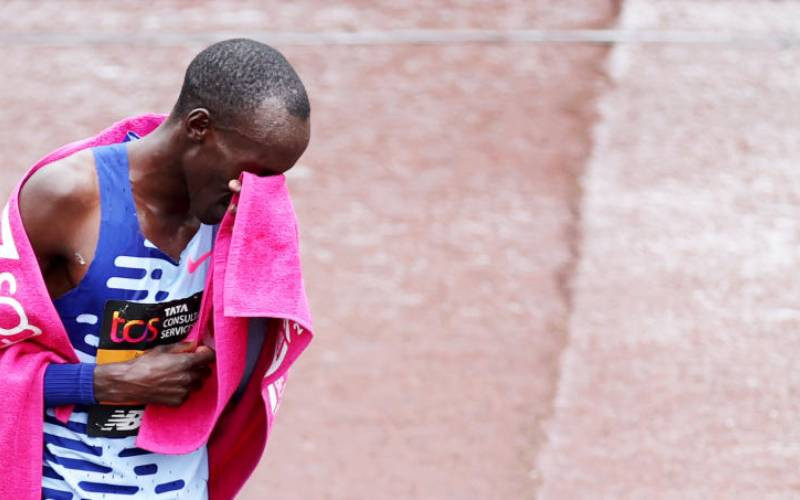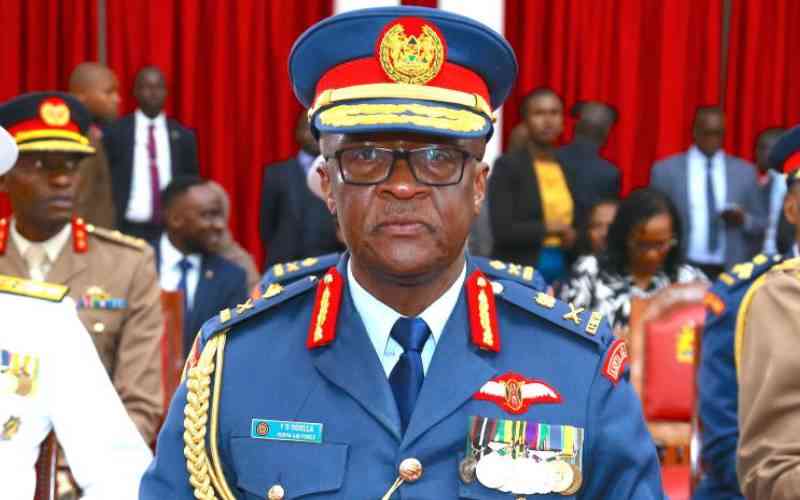Next week, two men of Kenyan origin meet in Washington as presidents for the first time. Uhuru Kenyatta, President of Kenya, represents the aspirations and interests of Kenyans while Barack Obama, President of the United States represents the interests of the Americans. There are striking similarities between the two countries and presidents but there are also differences pertaining to attitudes and policies. People in both countries, Ambassador Johnny Carson and I agreed after a radio debate refereed by former Deputy Speaker Farah Mohammed, tend to be arrogant. The meeting should help to sort out the differences that are essentially minor compared to the similarities between proud peoples.
Country similarities bring them close. First, both countries fought British colonialism to attain “liberty” roughly 200 years apart and despite numerous setbacks, eventually succeeded in achieving independence. Second, their first presidents, George Washington for the US and Jomo Kenyatta for Kenya, were towering political figures commanding immense authority before they assumed office. Each determined the direction that their countries would follow and appeared to be pragmatic on international matters.
Third, each country has consistently followed the democratic path, despite many obstacles that include having difficulties counting votes in selected places. Fourth, each has over time been accused of massive corruption and has suffered terroristic “consequences” partly because of the “choices” of being close to Israel.
Fifth both of their current presidents are beneficiaries of the long civil rights and anti-colonial movements that converged perfectly in the 1950s at the height of the Mau Mau War and the stirring of the Civil Rights confrontations.
This convergence of Kenyan anti-colonialism and the African-American anti-racial struggles was partly stimulated by the Cold War whose logic called for Americans to accommodate African students in US colleges as insurance that independent Africans would not become communistic. There was thus a meeting of the political mind between African interests, symbolised by the likes of Julius Gikonyo Kiano and Tom Mboya on one side, and Martin Luther King, Harry Belafonte, and John F Kennedy on the other. This was the Kenyan student airlifts to America and among those “airlifted” in 1959 was Barack Hussein Obama who ended up in Hawaii.
The “consequence” of this particular Kenyan’s active “choices” in Hawaii was the birth of another Barack Hussein Obama to an American mother on 4, August 1961. Two months later, on 26th October 1961 at Pumwani Maternity Hospital for Africans, another boy was born to the reputed Mau Mau Chief, Jomo Kenyatta, and named Uhuru to symbolise liberty.
The two boys, now presidents, are similar in terms of characteristics. Each received elite education, is left-handed and tends to be occasionally brash, articulate and politically shrewd, had propelled rise to political power, and symbolises the convergence of anti-colonialism and anti-racism.
Violations of international rules
Obama appeared to achieve the impossible by capturing the American presidency not so much because he is black but because he is of Kenyan parentage. Kenyans cheered this fact which, despite his American citizenship by birth, makes him Kenyan. In a way, therefore, Uhuru is Obama’s president.
Yet, despite those similarities of countries and presidents, Kenya and the United States have had differences that the two men will probably discuss. There is the perceived American arrogance and disdain towards Africa in general that manifests themselves in public lectures, reprimands, and violations of international rules because the United States is big. Particularly after 2003, Kenya has asserted its right to make independent decisions as to what its interests are and how to protect and advance them. At times, this independence annoyed the Euros led by the Americans and Britons because, as in the colonial days, they tend to treat Africans as perpetual children to be guided on what is good for them. They act in the true spirit of what Jomo Kenyatta, in 1938, termed “professional friends of Africa”, always willing to speak and decide for Africans. Kenya, making it clear it resents this attitude, increasingly has the support of other Africans.
And the Euros do not seem to get it. Washington is at times crude, as when Johnny Carson, threatened Kenya with “consequences” of making unapproved political “choices”. This spurred the Mau Mau goat in the Kenyans who voted for Uhuru partly because the Euros did not want him.
The Euros control the ICC and campaigned against Uhuru supposedly because he was indicted by the same ICC which, Louis Moreno Occampo later conceded, did shoddy investigations. In the process, the international “high priests” had applied the Barrabas principle of shifting blame and ended up making The Hague seem like another Kapenguria. Kenyans could see through it, and Obama seemed ridiculous in failing Kenya.
The unravelling of “The Other Kapenguria” strengthened Uhuru’s hand in Africa, similar to what had happened to his father in the 1950s, and even the Americans, in advancing their interests, cannot ignore this reality. When Obama decided to play catch-up to the likes of Japan, China, and India in organising “African Summits”, therefore, he could not ignore the country of his ancestors. The Asian countries had succeeded in advancing their interests in Africa by being positive and “respectful” rather than disdainful. The Euros, especially the Africanists, turned their failure into a myth of Kenya discarding “traditional friends” in the West by Looking East. Although Kenya has not and never claimed to discard the West, the popularity of this myth reflects Euro displeasure in the growing independence of the African mind.
Age-mate chemistries
The meeting in Washington, therefore, will be like a new meeting of the minds on what the issues bedeviling the Kenyan-American relations are and how to increase positive interactions. As the two age-mates take measures of each other, in the interests of their respective countries, the similarities rather than the differences will be pronounced as they seek ways of ensuring that their policy chemistries match and that each side feels good.
Stay informed. Subscribe to our newsletter
Given that the people in both countries tend to be arrogantly defensive of their positions, they have an obligation, despite the Africanists and assorted opinion makers, to change the negative image of being quarrelsome.
 The Standard Group Plc is a
multi-media organization with investments in media platforms spanning newspaper
print operations, television, radio broadcasting, digital and online services. The
Standard Group is recognized as a leading multi-media house in Kenya with a key
influence in matters of national and international interest.
The Standard Group Plc is a
multi-media organization with investments in media platforms spanning newspaper
print operations, television, radio broadcasting, digital and online services. The
Standard Group is recognized as a leading multi-media house in Kenya with a key
influence in matters of national and international interest.
 The Standard Group Plc is a
multi-media organization with investments in media platforms spanning newspaper
print operations, television, radio broadcasting, digital and online services. The
Standard Group is recognized as a leading multi-media house in Kenya with a key
influence in matters of national and international interest.
The Standard Group Plc is a
multi-media organization with investments in media platforms spanning newspaper
print operations, television, radio broadcasting, digital and online services. The
Standard Group is recognized as a leading multi-media house in Kenya with a key
influence in matters of national and international interest.







